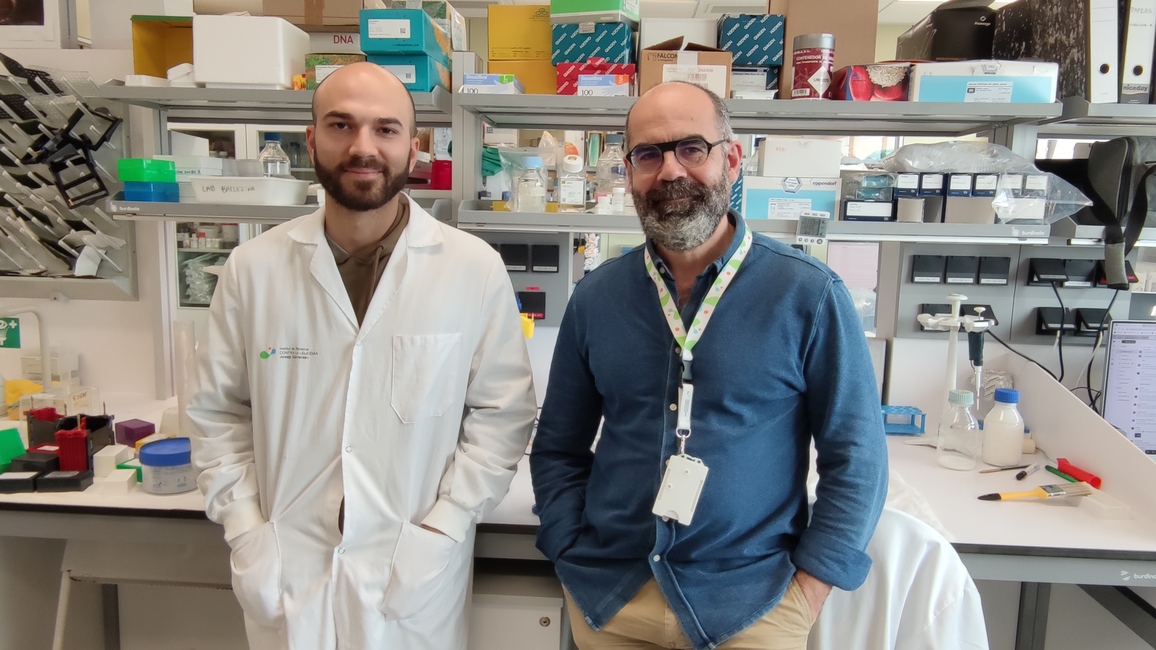Epigenetic features of blood monocytes can anticipate Rheumatoid Arthritis progression
Researchers from the Epigenetics and Immune Disease lab at the Josep Carreras Leukaemia Research Institute, have described the epigenetic alterations occurring in monocytes and macrophages during the early stages and progression of Undifferentiated Arthritis (UA). This information will be a valuable asset to predict the course of the disease and its treatment response and select the best available therapy.

heumatoid Arthritis is an autoimmune disease in which the immune system attacks the joints, producing inflammation, pain and stiffness. It is considered a chronic inflammatory disorder, affecting both young and old individuals. Monocytes and macrophages, two closely related cells with phagocytic and proinflammatory abilities stand out as some of the most active components of the immune system in UA.
In a recently published article by Dr. Carlos de la Calle-Fabregat as first author, a team of researchers led by Dr. Esteban Ballestar and Dr. Juan Cañete (Hospital Clinic, Barcelona), focused on the particular epigenetic changes occurring in those cells since the early stages of arthritis in both the blood stream and the synovial fluid around the joints. Epigenetic modifications are those responsible to limit the accessibility of the genetic information in a cell, thus controlling its programming just like small genetic switches.
Their analysis concludes that monocytes show an abnormal epigenetic dysregulation in regions related to immune cell function and inflammation in UA, in line with studies from other inflammatory diseases. After grouping the samples according to the evolution of the disease, the researchers could identify those alterations associated with a better or poorer outcome of the disease, that could be used as a prognosis marker.
Interestingly, the monocytes from patients spontaneously recovering from the disease showed a healthy-like epigenetic landscape, meaning that disease progression correlates with the molecular features of its effector cells. Most importantly, these features appear way in advance, and can be seen in both synovial fluid and blood monocytes, so a routine blood test would be sufficient to predict the future course of the disease and help anticipate to it.
This study also involved the participaticon of additional hospitals of the Barcelona metropolitan area including Hospital Universitari Parc Taulí. Hospital del Mar, Hospital de la Santa Creu i Sant Pau and Hospital Universitari Mútua de Terrassa.
REFERENCE ARTICLE:
de la Calle-Fabregat C, Rodríguez-Ubreva J, Ciudad L, Ramírez J, Celis R, Azuaga AB, Cuervo A, Graell E, Pérez-García C, Díaz-Torné C, Salvador G, Gómez-Puerta JA, Haro I, Sanmartí R, Cañete JD, Ballestar E. “The synovial and blood monocyte DNA methylomes mirror prognosis, evolution and treatment in early arthritis”.
JCI Insight. 2022 Mar 24:e158783. doi: 10.1172/jci.insight.158783. Epub ahead of print. PMID: 35324478.